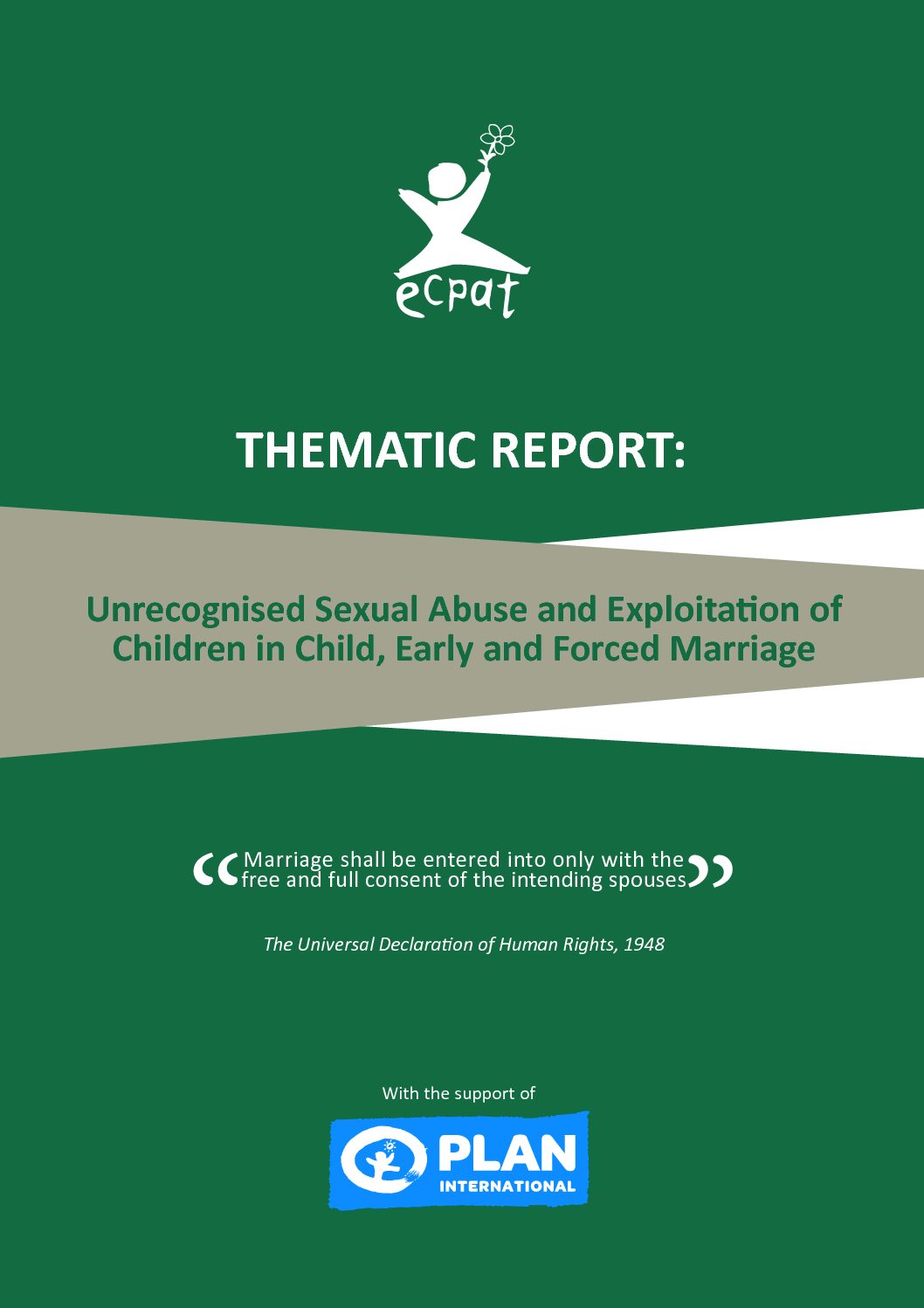
Thematic Report: Unrecognized Sexual Abuse and Exploitation of Children in Child, Early and Forced Marriage
When girls attain sexual maturity, their vulnerability to sexual violence rises, along with parental apprehension about their safety. Especially in traditional and poor communities where girls’ roles are often expected to be that of mothers and wives, puberty may coincide with school dropout and early marriage. Parents who marry their children before they reach legal age are typically motivated by predetermined social and sexual norms, low value attached to daughters, poverty or humanitarian crises. Confronted with social pressure and family hardship, they may seek in marriage a form of protection to shield their children from destitution, household food insecurity and, ultimately, sexual harassment. In the reality of the 700 million women alive today who were married before their 18th birthday, however, child, early and forced marriage (CEFM) may have been a route to systematic, albeit unrecognized, sexual abuse and exploitation. No longer children, not yet adults, child brides tend to be denied fulfillment of their fundamental rights and access to social services otherwise granted to unmarried children and married women. The marginal social roles assigned to married girls discontinue the privileges of childhood, while precluding access to powers granted to adult members of their communities.
